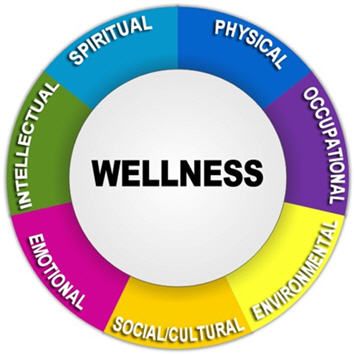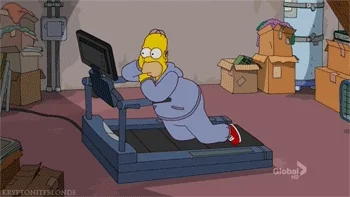If you've experienced brain trauma, you might not feel like your old self — you might be foggy-headed, feel pain, have excessive fatigue, and/or your mood might be all over the place.
It's a tough place to be, but there are ways to help yourself recover.

These strategies will help you if:
You’ve experienced a brain injury (e.g. concussion or stroke), or are looking for information to help someone who has.
You’ve been evaluated by a qualified medical practitioner and followed the advice they gave.
Your brain injury was over a month ago, and you are still experiencing symptoms.
If that isn't your situation but you think you might have a brain injury:
Be sure to be evaluated by a medical professional and follow the medical advice provided.
Most mild brain injuries go through a predictable recovery process and the symptoms go away pretty quickly with a bit of TLC.
Use Your Mind to Help Your Brain
Embrace the Change
First things first — accept that things might be different now. Your mindset is so important in adapting to your new normal.
Embrace the changes and plan for a future that might be different from what you had in mind before the injury.
Celebrate every win, big or small. Can you sometimes remember things without looking at notes? Or control a strong emotion? Or feel more stable on your feet? That deserves celebrating!
Treat yourself and others with patience. You're all learning and adjusting, and that’s going to be a process.

Set Goals and Crush Them
 Source: unr.edu
Source: unr.edu
Set realistic goals (only 1 or 2) for yourself based on what you can do now.
You might focus on getting back to your friends, community, family, and work or school life, but maybe in new ways. Try this Byte for tips on setting goals.
Now, how are you going to do that?
Make a plan for the first thing you need to do — make sure you have all the information, supplies, equipment, and the help you need to make this work.
OK, now go do it!
Check back. What worked? What didn’t? Adapt your plan to make it better.
Stay Healthy

Keep it Chill: Reduce Cognitive Load
Tackle one task at a time.
Find a quiet space without distractions.
Use reminders and automation to help you finish tasks.
Keep a diary to track your progress.
Do the most challenging things when you have the most energy for them.
Keep Moving: Physical Health
People with brain injuries need to stay active, but often don't. After all, it's harder to exercise now. Try these tips:
Adjust activities to match your abilities (like using lighter equipment).
Take breaks and rest when needed.
Gradually increase the difficulty / intensity of the exercises as your symptoms allow.

Eat Well
Feed your brain well. Good food helps it recover better. This Byte has some great tips on the kinds of foods that help your brain function well.

Quiz
What are some techniques you can use to remind yourself to finish tasks? Select all that apply:
Keep on Having Fun
Stay Sociable
Keep up with your friends and hobbies to boost your emotional well-being. Support is key to thriving in your "new normal”.
Think about joining a local brain injury survivors' group for support and shared experiences. This could be the one group of people who really "get" your experience!

Mix It Up
Try new activities and hobbies that match your current abilities and interests. You might find new passions and bring joy into your life.
For example, you could try hiking instead of running, or playing and writing music rather than attending concerts. If you love competition or gaming, board games have all the strategy and contests without over-stimulation.
Adapt Your Working Life

When you're ready to return to work or school, keep making the adaptations you need to make it work. e.g.
Take plenty of breaks.
Stick to routines and structure.
Ask for flexibility and reduced hours.
Seek out support from your supervisors and coworkers. They all want to see you succeed.
Volunteering can also be a great option if you're not quite ready for work or school
Get Help
Don't be afraid to ask for help — different people can offer different kinds of assistance.

Family
Friends
Professionals

Encouragement
Practical help
Tips
Resources
Take Action
By focusing on these areas and trying out these strategies, you'll be well on your way to finding your new normal after a brain injury.
Your feedback matters to us.
This Byte helped me better understand the topic.

